#king edward iv
Text

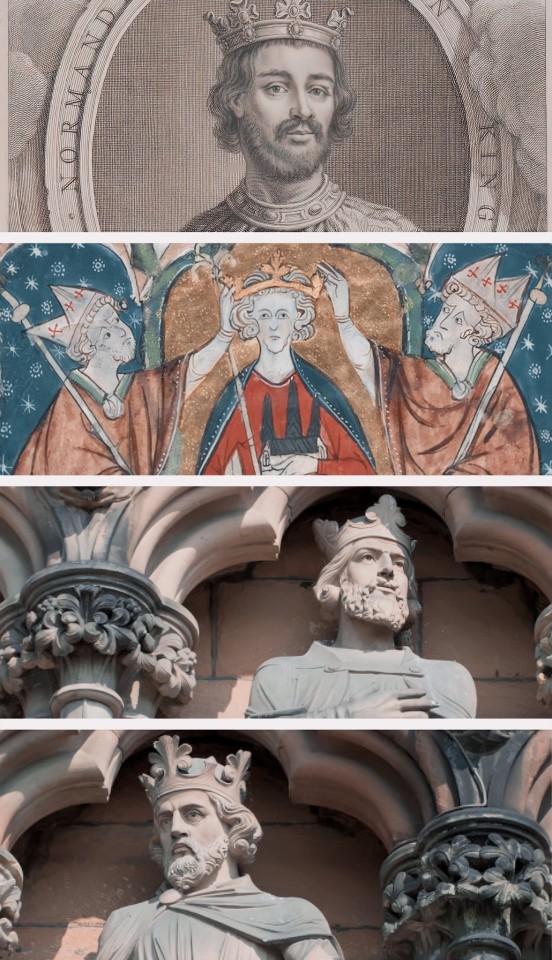
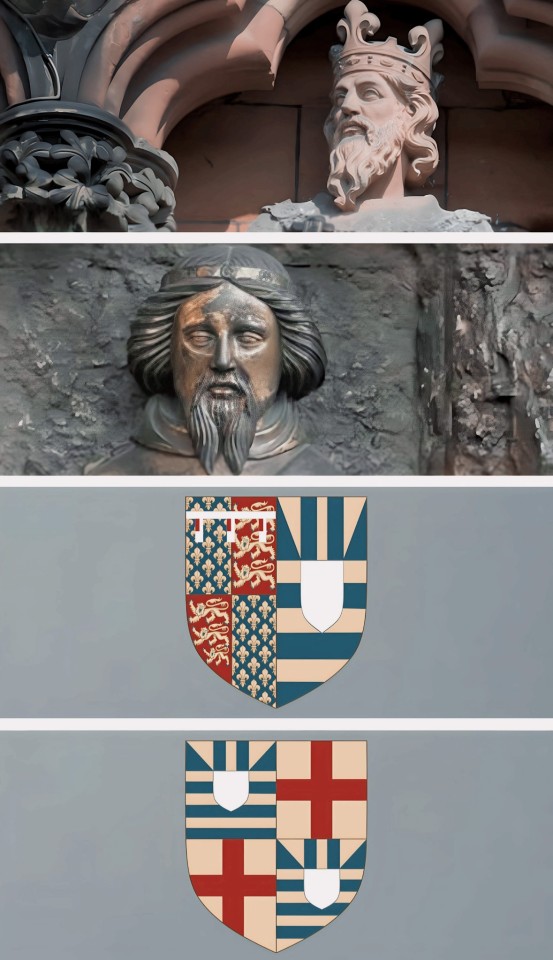



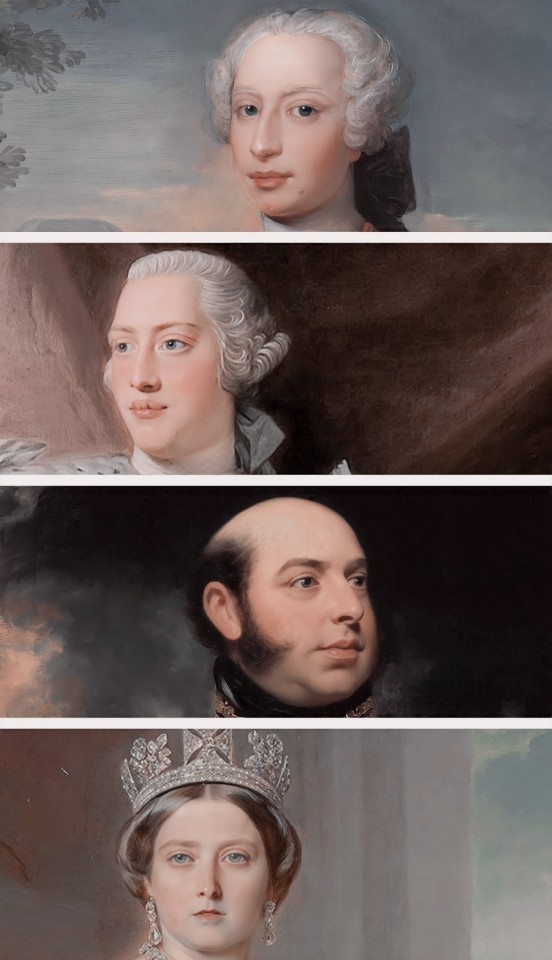

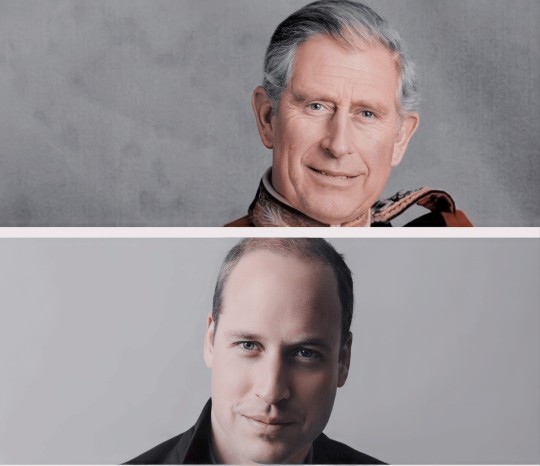
⋆ William, The Conqueror to William, The Prince of Wales ⋆
⤜ The Prince of Wales is William I's 24th Great-Grandson via his paternal grandmother's line.
William I of England
Henry I of England
Empress Matilda
Henry II of England
John of England
Henry III of England
Edward I of England
Edward II of England
Edward III of England
Lionel of Antwerp, Ist Duke of Clarence
Philippa Plantagenet, Vth Countess of Ulster
Roger Mortimer, IVth Earl of March
Anne Mortimer
Richard Plantagenet, IIIrd Duke of York
Edward IV of England
Elizabeth of York
Margaret Tudor
James V of Scotland
Mary Stewart, Queen of Scotland
James I of England
Elizabeth Stuart, Queen of Bohemia
Sophia, Electress of Hanover
George I of Great Britain
George II of Great Britain
Frederick, Prince of Wales
George III of the United Kingdom
Prince Edward Augustus, Duke of Kent and Strathearn
Victoria of the United Kingdom
Edward VII of the United Kingdom
George V of the United Kingdom
George VI of the United Kingdom
Elizabeth II of the United Kingdom
Charles III of the United Kingdom
William, The Prince of Wales
#royal line from william i#the british royal line#british royal family#british royals#royalty#royals#british royalty#brf#royal#royalty edit#mine.#historical royals#prince william#prince of wales#the prince of wales#william the conqueror#king edward iv#the plantagenets#house of york#house of plantagenet#house of tudor#house of stewart#house of stuart#king charles#king charles iii#queen elizabeth ii#queen victoria#house of normandy#mary queen of scots
168 notes
·
View notes
Text

After meeting his fiancee-to-be, Edward's full attention is on his fiancee. Even Elizabeth is insignificant to him now.
Richard : The Beautiful Princess blew her mind.
Edward: Yes, it is.
Richard: You forgot even Elizabeth.
Edward: There's no point in opening up the past. My future is before me.
Richard : I hope you have a happy life with your precious fiancee.
Edward: It will. No one can prevent this.
#white queen#king edward iv x reader#king edward iv#yandere king edward iv#yandere king edward iv x reader#yandere husband#yandere concept#yandere headcanons#yandere imagines#imagines
47 notes
·
View notes
Text
AI actually did pretty good here (at recognizing him)
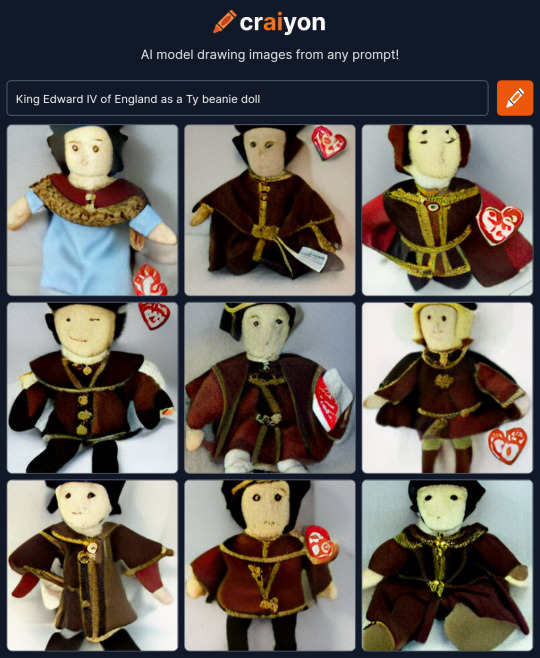
89 notes
·
View notes
Text
The Strange Historical Origins of the Humpty Dumpty Nursery Rhyme

By Carl Seaver | 24 January 2023
Nearly all children who grew up during the twentieth century are familiar with the nursery rhyme of Humpty Dumpty.
This modern version of the short rhyme runs as follows:
“Humpty Dumpty sat on a wall,
Humpty Dumpty had a great fall;
All the King’s horses
And all the King’s men,
Couldn’t put Humpty together again.”
So far, the story is quite simple. However, there is a much wider story to how this nursery rhyme came into existence and developed over five or six hundred years.
This is the story of the strange historical origins of the Humpty Dumpty nursery rhyme.
The Modern Origins of Humpty Dumpty
Humpty Dumpty has been around for centuries, but the modern, standardized version of the rhyme is largely derived from the version published by an English publisher and organist Samuel Arnold in 1797. This ran:
“Humpty Dumpty sat on a wall,
Humpty Dumpty had a great fall.
Four-score Men and Four-score more,
Could not make Humpty Dumpty where he was before.”
Slight evolutions occurred after that throughout the nineteenth century until the twentieth-century version was arrived at.
Was Richard III the inspiration for Humpty Dumpty?
The Humpty Dumpty rhyme can be traced back to at least the late fifteenth century and is an allusion to King Richard III.
Richard III briefly reigned as King of England between 1483 and 1485 after his brother, King Edward IV, passed away.
Edward was to be succeeded by his son and namesake, Edward V, but as the young Edward was a minor in 1483, Richard was chosen to serve as regent until he reached adulthood.
Richard can hardly be said to have honored his brother’s faith in him and quickly placed young Edward and his younger brother Richard in the Tower of London, from where they never reappeared.
The assumption is Richard had his two young nephews killed, and thereafter, he usurped the throne.
He did not go unchallenged in this, and Henry Tudor, a Welsh upstart, overthrew him in 1485 by defeating Richard in combat at the Battle of Bosworth Field.

All of this is relevant to Humpty Dumpty because Richard suffered from scoliosis and was a hunchback.
Additionally, his horse was allegedly called ‘Wall.’
So, in later years, when figures such as the great playwright William Shakespeare wrote about Richard, they emphasized his humped back.
By modern standards of ethics, it hardly seems acceptable to refer to somebody with a physical disability as ‘Humpty Dumpty,’ but this seems to have been a reference to Richard’s humped back.
When the rhyme refers to him falling off of a ‘wall,’ this would seem to be a reference to his horse, which Richard is recorded as falling off of at the Battle of Bosworth Field.
The King’s soldiers and men are a reference to his forces at the battle being unable to win the day against Henry Tudor’s army.
Other Possible Origins of Humpty Dumpty
Richard III’s story is the most plausible origin of the Humpty Dumpty rhyme, but several others exist.
Some suggest that Humpty Dumpty is a derivative of a Swedish or Germanic fairy tale character, many of which were immortalized by the Brothers Grimm and Hans Christian Andersen in the nineteenth century.
There is also a plausible link to seventeenth and eighteenth-century slang terms.
For instance, Humpty Dumpty was a drink consumed in Stuart-era Britain composed of a mix of brandy and ale.

This, combined with other pejorative terms which were used at the time to refer to people of shorter stature, would suggest that at least in the eighteenth century before Arnold publicized the largely modernized version of the rhyme, Humpty Dumpty was a bawdy, insulting comedic figure of some sort which term was widely applied to people when inebriated.
Humpty Dumpty and the English Civil War
One final interpretation is that Humpty Dumpty was the name of a large piece of ordnance, or a canon, which was mounted on the walls of the town of Colchester in the mid-seventeenth century.
During the 1640s, England, Scotland, Wales, and Ireland were enveloped by a series of conflicts collectively known as the Wars of the Three Kingdoms or the English Civil War in England.
Colchester was besieged during the civil war between King Charles I and the English Parliament in 1648.
Humpty Dumpty was the name of a huge canon atop the town’s walls.
The Royalists, the King’s supporters, held the town while the Parliamentarians besieged it.
The wall, which Humpty Dumpty was perched on top of, was shattered by parliamentary ordnance fire, and Humpty Dumpty fell off this great wall.
The King’s Men, in this interpretation, were the Royalists, who could not remount the canon, and eventually, after an eleven-week siege of Colchester, were forced to surrender to the Parliamentary forces.
Again, the theory that the Humpty Dumpty rhyme originates in the siege of Colchester in 1648 is speculative.
What seems clear from all of this is that there is no one origin story for the Humpty Dumpty rhyme.
Rather, it was a rhyme inherited from the early modern world from medieval times.
Each successive generation reimagined it to suit the circumstances of their age, whether that was Richard III falling from his horse in 1485, a canon falling from the walls of Colchester in 1648, or somebody who had drank too much brandy and ale falling over in the seventeenth or eighteenth centuries.
Each generation brought its interpretation to the rhyme we all know today.
#Humpty Dumpty#Samuel Arnold#King Richard III#Battle of Bosworth Field#Henry Tudor#King Edward IV#Edward V#Brothers Grimm#Hans Christian Andersen#Wars of the Three Kingdoms#English Civil War
23 notes
·
View notes
Text

In order to give a better look in Margaret of Anjou’s role behind the Lancastrian’s resistance to Edward IV’s usurpation, historian Lauren Johnson gives us a fair interpretation of the Lancastrian queen as seen below:
"In rumour, as in reality, the true motivating force behind Lancastrian resistance was Margaret. Although Henry was accused by Edward IV's parliament of participating in the rebel attack on Ryton and Brancepeth in summer 1461, he was playing little more than a puppet role, acting as figurehead while the real effort of promoting and sustaining the Lancastrian cause was Margaret's.
By August Margaret was at the heart of the resistance court in Edinburgh with their seven-year-old son, directing their faithful Lancastrian commanders to resist sieges, lead armies and set off on daring diplomatic missions, while Henry took a small travelling household to the coastal priory of Kirkcudbright in the southwest of Scotland to seek solace in the ritual and quiet of monastic life.
It is hard to escape the impression that Henry's desire for his own restoration was distinctly ambivalent. His experience of kingship had been one of intense stress, external pressure and an increasing awareness of his own deficiencies.
For almost a decade he had presided over a fracturing government, a disappointed populace and a bleeding realm.
The motivation to maintain the mental and physical exertions of not only ruling, but now regaining, a kingdom must have been difficult to summon.
But what was the alternative? Perhaps Henry, Margaret and Edward could retreat into quiet obscurity, living off whatever meagre support their continental relatives were willing to spare for their survival.
But as Edward of Lancaster grew into manhood, he would represent a threat to the Yorkist regime. A rival prince returning to claim the inheritance of which he had been dispossessed, and thereby ousting the present king, was fast becoming a cliché of English politics.
Thus had Henry IV usurped Richard Il in 1399, and Edward IV had repeated the tactic with Henry VI in 1461. It seemed extremely unlikely that the proactive and occasionally ruthless Edward IV would let the Lancastrian prince survive if he showed any indication of becoming such a threat.
It would be a far from tranquil exile under those circumstances, as Henry himself must have realized. Even if Henry had been willing to risk the life of his son - and there is nothing to suggest he had anything but natural paternal feeling for Prince Edward - there was no way Margaret would do so.
Already, like a lioness, she held her cub close, keeping a watchful eye on any potential threat. Then there was the question of duty. A king had a personal and dynastic duty to defend his realm and that did not end simply because he had been temporarily deprived of his throne.
The very nature of fifteenth century kingship was that it did not involve choice - you were born to be king, anointed in a sacred ceremony and acclaimed by your people, then ruled until you died. A king's exalted status came not merely with super or power and wealth, it also came with a heavy sense of responsibility.
'The king.. is given for the kingdom,' as Henry's chancellor Sir John Fortescue wrote, quoting St Thomas Aquinas, 'and not the kingdom for him.'”
#plantagenet dynasty#plantagenet#Plantagenets#house of lancaster#house of York#wars of the roses#The cousin’s wars#margaret of Anjou#Queen margaret#queen margaret of Anjou#marguerite d’anjou#Edward iV#king Edward IV#king Henry VI#Henry VI#Edward of Westminster#Prince of Wales#Edward Prince of Wales
13 notes
·
View notes
Text



idiot who doesnt realize how much theyre gonna have to draw cowboy hats: uhmmmm scifi western fma au
#fma#fullmetal alchemist#edward elric#alphonse elric#fullmetal alchemist brotherhood#fmab#inspired by me slowly getting absorbed into rdr2 and everything ive been seeing of trigun stampede#and the singular cowboy ed madootles posted the other day#changing my life yall#and yes they have guns but the secret IS is that those guns are FAKE#bc their intimidation factor is so impressive that they never need to use them#i mean? firebomb short king edward elric going crazy on you and 6'4" alphonse elric looming over u with his hat tipped down?#gone. gone like the wind#idk might call this the wastelands au bc fun :^)#wastelands au
3K notes
·
View notes
Text

need them to collab so bad
#kingdom of heaven#kingdom of heaven 2005#fallout new vegas#fnv#fallout new vegas fanart#joshua graham#joshua graham fanart#king baldwin iv#edward norton#scarred.#and devout Christian men
791 notes
·
View notes
Text


Two recent drawings of a king
#digital art#kingdom of heaven#baldwin iv#procreate#portrait#edward norton#the leper king#artists on tumblr#scribbles#drawing#fanart#portraiture
408 notes
·
View notes
Text
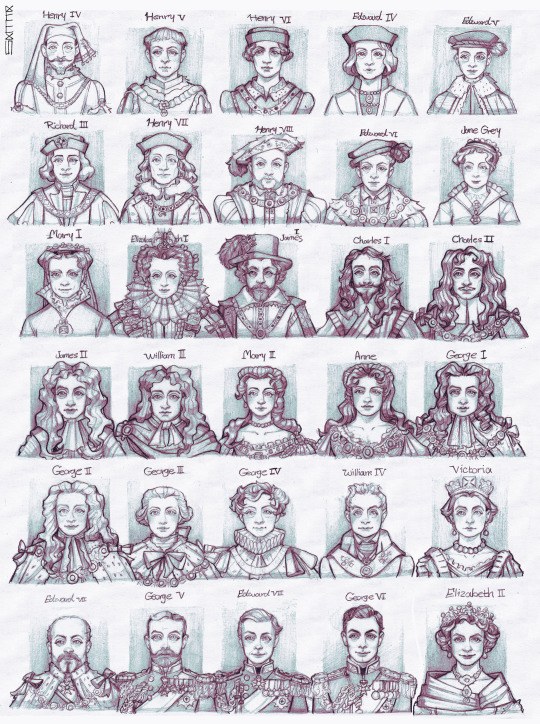
Something I had done years ago on A4 size paper. I think I skipped a few due to lack of space. Kings and Queens of England (after king Henry IV)
#kings of england#artists on tumblr#drawing#traditional art#traditional drawing#Richard III#Henry VII#Henry VIII#Mary I#Elizabeth I#Charles I#Charles II#George III#George IV#Queen Victoria#George v#George VI#Edward VII#queen elizabeth ii#history art
695 notes
·
View notes
Text
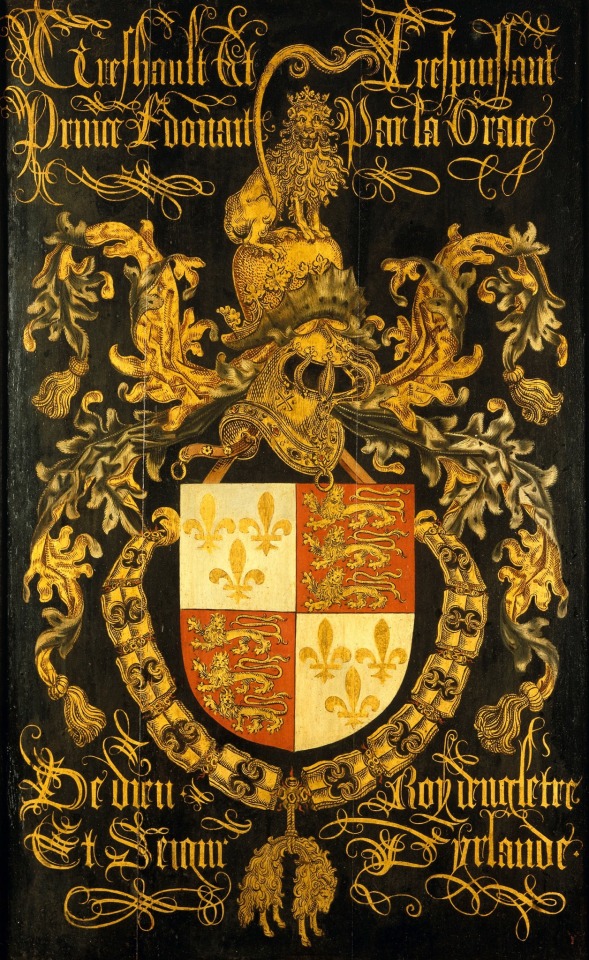
Coat of Arms of Edward IV, King of England, in his Capacity as Knight of the Order of the Golden Fleece
by Pierre Coustain, c. 1481
#edward iv#king#england#english#coat of arms#heraldry#heraldic#pierre coustain#art#medieval#mediaeval#middle ages#chivalry#order of the golden fleece#shield#history#knights#knight#helmet#europe#european#burgundy#netherlands#bruges#heraldic art
206 notes
·
View notes
Photo
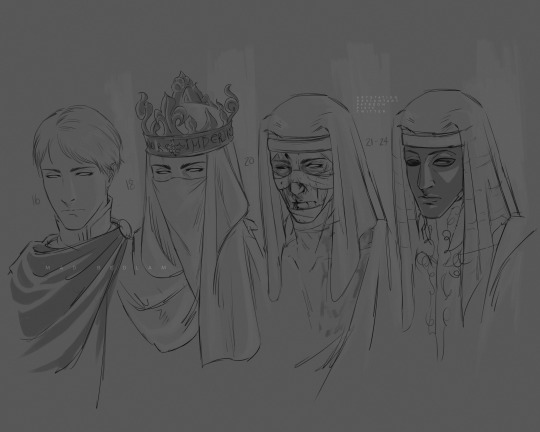
"You 're a beautiful boy..."
Artstation
DeviantArt
Instagram
Patreon
pixiv
Twitter
#sketch#sketchbook#my art#king baldwin#baldwin iv#king baldwin iv#koh#kingdom of heaven#Edward Norton#digital art#fan art#templar#knight#leper king#laper king#king
945 notes
·
View notes
Text
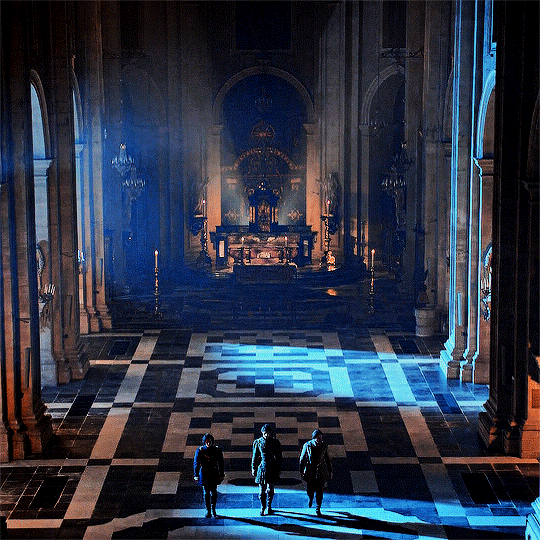

ANEURIN BARNARD, MAX IRONS and DAVID OAKES
as RICHARD III, EDWARD IV and GEORGE, DUKE OF CLARENCE
#the white queen#twqedit#richard iii#edward iv#george duke of clarence#aneurin barnard#max irons#david oakes#period drama#weloveperioddrama#onlyperioddramas#i hate aneurin for being so beautiful#I wanted richard to be pretty like that#but every time i look at his bust i see a fusion of lord faquaard with quentin tarantino#and the time they put a blonde wig on him kakakkakakakakakakka#i'm not hating on richard okaaaay#he's a pretty coquette king#mine#byfefa#richardiiiedit#georgeclarenceedit#edwardivedit
172 notes
·
View notes
Note
yandere king edward iv and Dancer reader?

King Henry meets you at a party. He can't take his eyes off you while watching your dance. He feels like a hungry wolf and can swallow you in one bite. He calls you right away. It instantly takes you to the Palace or to a mansion in particular. It will not accept your objections. From now on you can dance for him alone. No one can stop him from making you his mistress. He always praises your dance and talent.
#yandere the white queen#yandere king edward iv x reader#king edward iv#yandere king edward iv#king edward iv x reader#yandere the white queen characters#yandere character
26 notes
·
View notes
Text
Apparently King Edward IV
.
.
.
.
kept
.
.
.
.
.
🐫🐫🐫🐫🐫🐫!
0 notes
Text
Baldwin IVs love language
I thought about how one person could possibly win over Baldwins heart and decided to write about the ways I think he enjoys to be cherished as a partner. Hope you enjoy!

I think Baldwin prefers three out of the five love language types: Quality time, words of affirmation and physical touches. Let me explain why:
Quality time: Baldwin definitely enjoys to spend some alone time with his significant other. It doesn't matter if you sit together after a long day and you listen to him talking about the political situation in the kingdom, you two sitting comfortably next to each other while you both read a book, or even meet up to eat dinner together: this is his favorite time of the day. Spending time with you,getting to know you is THE most important thing for Baldwin. For most of his life, he usually spend the evenings either alone or with work but ever since you came into his life, he looks forward to each end of a day when he can finally join you and just cherish your company. I really think due to the leprosy and the limits of physical love that comes with it, Baldwin falls in love with a mind,not looks. So if you talk to him about philosophy,history or some good stories of French knights,he will absolutely fall for you. He really needs this time to make sure that he stays grounded, to remember he found a home in you.
Words of affirmation: While Baldwin definitely stands his ground in political discussions and acts as a remarkable ruler on the outside (and the inside!), I think he also has a very vulnerable side to him. How could he not? Carrying the future of the whole kingdom on his shoulders while suffering from an incurable disease that may or may not be connected to the wrath of God? Baldwin definitely has his moments when he is sure that he can't continue like this. Shallow moments when the anger he feels about this situation does seem to get to his head. He usually spends these moments alone in his private chambers because he doesn't want to show anyone how he much the world hurts sometimes, but after some time, he would definitely let the mask down (haha) in front of you. It may take a while for him to be really comfortable to show anyone how he truly feels but as soon as he accepts you as his safe place, he WILL let his guard down. You accepting this side of him, listening to him rambling, drying his tears feels like heaven on earth to him. He loves to hear words of support from you, how he is a good king and how proud you are of him. But sometimes it's enough for him to just listen to your breath while he lays on your chest and accept his tears.
Physical touch: Listen to me, this man is touched starved for what seems like forever. Every day of his life consists of people avoiding his presence, avoiding his touch, fearing him. And he isn't even angry about this,how could he? They fear the leprosy and he completely understands this. He himself still can't believe sometimes that God brought this upon him and the way this illness is destroying every part of his body. Yes, sometimes he feels like a rotten corpse that somehow still clings to life. He would never EXPECT anyone to willingly touch him, although he silently hopes that he will feel physical love again...somewhen. So when you softly touch his hand while you both play chess, he is sure that he can hear the blood rushing through his veins. His heart is beating faster than ever and although he can't exactly FEEL you, seeing somewhen closing the physical gap is enough for butterflies to fly in his stomach. The thought alone that you don't FEAR him, that you don't think him ugly or nasty but,on the contrary, long for his touch may be the best feeling for him. So every time you draw him in for a soft hug, kiss his mask or lay your hand in his, he feels like the luckiest man on earth.
#baldwin iv#kingdom of heaven#king baldwin iv#kingdom of heaven king baldwin#edward norton#crusaders#king baldwin#kingdom of heaven 2005
376 notes
·
View notes
Text

Not me, starting yet another WIP without finishing my other work first...
#WIP#baldwin iv#kingdom of heaven#king baldwin iv#edward norton#kingdom of heaven 2005#fanart#wip art#my art
132 notes
·
View notes